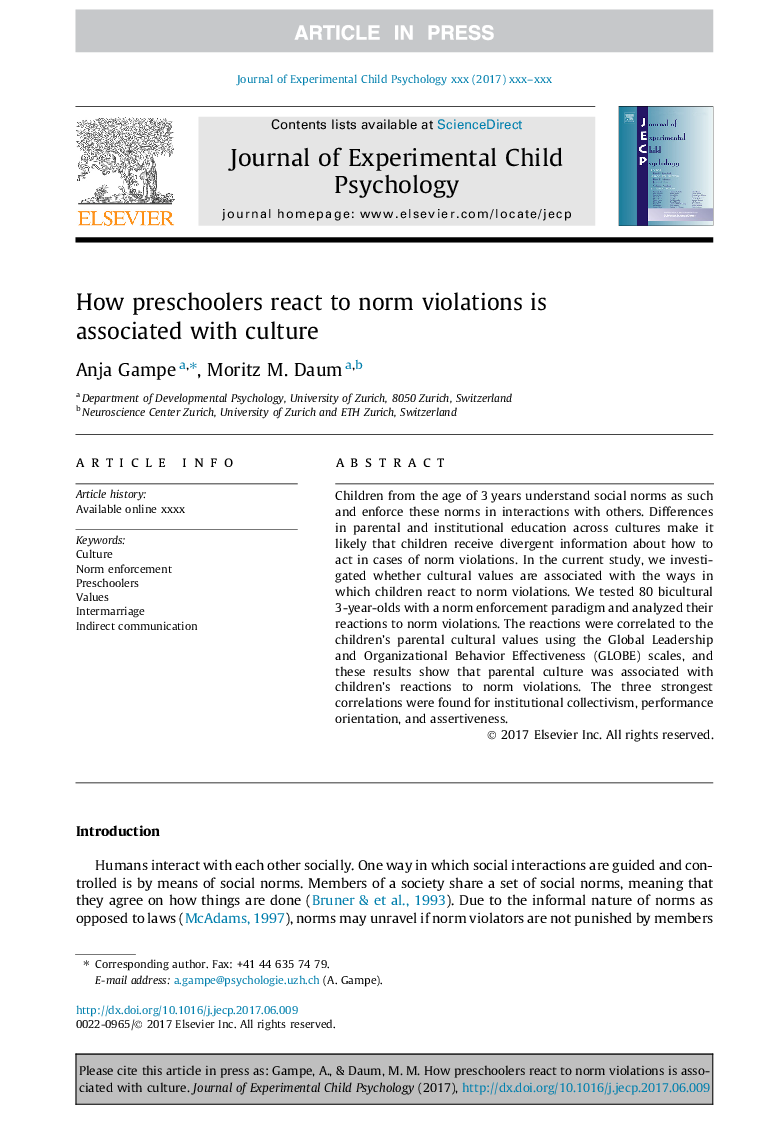| Article ID | Journal | Published Year | Pages | File Type |
|---|---|---|---|---|
| 7274351 | Journal of Experimental Child Psychology | 2018 | 13 Pages |
Abstract
Children from the age of 3Â years understand social norms as such and enforce these norms in interactions with others. Differences in parental and institutional education across cultures make it likely that children receive divergent information about how to act in cases of norm violations. In the current study, we investigated whether cultural values are associated with the ways in which children react to norm violations. We tested 80 bicultural 3-year-olds with a norm enforcement paradigm and analyzed their reactions to norm violations. The reactions were correlated to the children's parental cultural values using the Global Leadership and Organizational Behavior Effectiveness (GLOBE) scales, and these results show that parental culture was associated with children's reactions to norm violations. The three strongest correlations were found for institutional collectivism, performance orientation, and assertiveness.
Related Topics
Social Sciences and Humanities
Psychology
Developmental and Educational Psychology
Authors
Anja Gampe, Moritz M. Daum,
